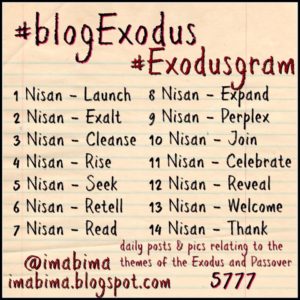 When I think of the word “exalt”, my mind immediately goes to those ancient Aramaic words that open the Kaddish – May His great name be exalted and sanctified.
When I think of the word “exalt”, my mind immediately goes to those ancient Aramaic words that open the Kaddish – May His great name be exalted and sanctified.
For many people, the Kaddish, a prayer of thanksgiving and exaltation, is inextricably bound with the sadness of death and loss, because it is recited by mourners at the funeral, during the period of mourning, and on the anniversary of the person’s death every year thereafter.
There is not a single word of loss or grief in the Kaddish – it is all about the sanctification and exaltation of G-d’s name.In Jewish tradition, kiddush HaShem, sanctification of G-d’s name, is brought into the world by acts of love and virtue. The term is also used to describe martyrs, those who have died rather than compromise their values and beliefs.
It is a celebration of life, which makes it a very, very Jewish thing to do in the midst of death.
The Kaddish has other applications as well, serving as the separator or demarcation between different parts of the synagogue service, for example. It is also recited after a group of people has studied Torah or Talmud.
During this busy time of year, it’s important to remember that Judaism is about the celebration of life. In the time of the Temple, ritual impurity was brought on by contact with death – to this day, people who identify as descendants of the Temple priests will often avoid cemeteries, except for the funerals of close family members.
Today I learned of the suicide of an old classmate of mine, and in the midst of the shock and sadness, I am more determined than ever to push for love and life. I want to be a light in the world to those who are struggling in darkness.
So remember to celebrate life every day – when we appreciate this precious gift we were given, we exalt G-d’s name in the world.
How do you celebrate life?
